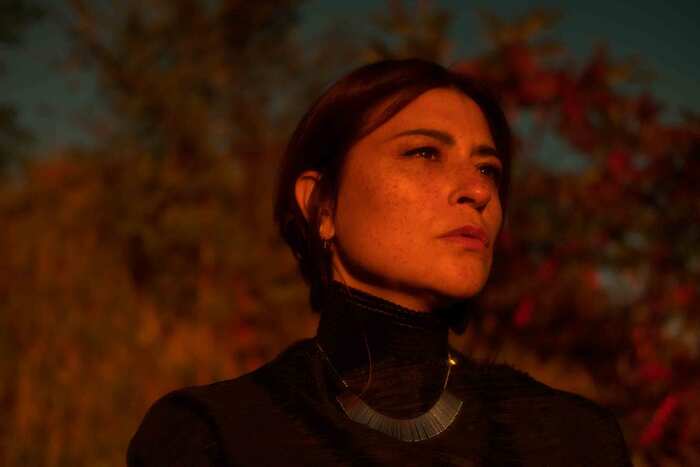Purveyor of: Folk, pop, and classic Indigenous songs
File next to: Fanny Bloom, Salomé Leclerc, Philippe Branch
Playing: Wavelength Winter Festival Night 3, Sunday Feb. 17 @ The Garrison. Get tickets here!
Elisapie is a Canadian singer/songwriter, activist and filmmaker who hails from the absolute north of Quebec. Having won a Juno for Aboriginal Recording of The Year back in 2005 for the project Taima, as a solo artist Elisapie has become an important figure in Canadian music. Calling her music an “open door,” her effortless transition in producing works in Inuktitut, English, and French reflect an existence between cultures and heritage. Elisapie’s music, as heard on her 2018 album The Ballad of the Runaway Girl, combines sounds from ’70s American folk and Indigenous folk music along with splashes of pop. Wavelength’s Tanya Sahni learned more from Elisapie herself in advance of her set at Wavelength’s 2019 Winter Fest.
I think sometimes writers and critics put artists in a certain genre box, and I’d like to hear where you put yourself. How do you describe your music to people?
It’s always hard to describe my music to people, it’s actually impossible for me. I don’t like categorizing or talk about the style of music I do, ’cause it’s a mix of so many styles. And I’m more interested in reaching peoples’ hearts and moving them with sounds and words. But this album (The Ballad of the Runaway Girl) is all about reaching the deeper side of us, the human side and spiritual side. That’s how I made these songs.
Having a captivating onstage presence is a talent. Are there any other artists or performers you look to or have been inspired by for your live performance?
.Thank you 😉 I’m in awe of so many performers. It’s a very sacred thing, but it can be a complex thing. You really have to be connected with yourself and become fearless. I guess the stage has become that place where I can show vulnerability and also strength. PJ Harvey has been my favorite performer.
Your songs shift in languages between Inuktitut, French, and English very often. I’ve read that the language you choose for a song depends on its content or genre (i.e. English for folk). Was this a conscious decision that you made, or one that came naturally as you wrote?
I listened to a lot of folk songs from the ’60s and ’70s and I felt very connected to them, especially to the Indigenous artists. So I was more in the mood to talk about connection to the land, the territory, ceremonies and how we view death. How we are spiritual beings and also close to the nature, the animals, so it felt right to sing more in English a lot of times, it’s my reference, but also more Inuktitut ’cause I felt like I was back home and had things to say.
Your music reflects a mixing of identities and cultures, which we don’t see often enough in the mainstream, despite Canada being a land of people living between cultures. Is this something you aim to have a conversation about with your music?
I’ve just been a mix all my life. I don’t try, I just am naturally always able to be on many sides. So naturally, I like feeling like I’m somewhere in between things, people, places. It sometimes hard to decide but I like it. I also like contrasts.
You’ve performed all around the country and witnessed music scenes all around. Is there something that differentiates Toronto from other cities?
It’s just a fun city. It’s a big city with a lot of musicians and artists so it’s fun to know that we can go edgy! To be heard!
Is there a song that describes how you feel in 2019 so far?
‘I Pity the Country‘ by the late Willie Dunn, an indigenous artist that every Canadian should know!

